We live in an age of digital convenience; an age of instant gratification with the world at our fingertips. Streaming services such as Spotify and Apple M
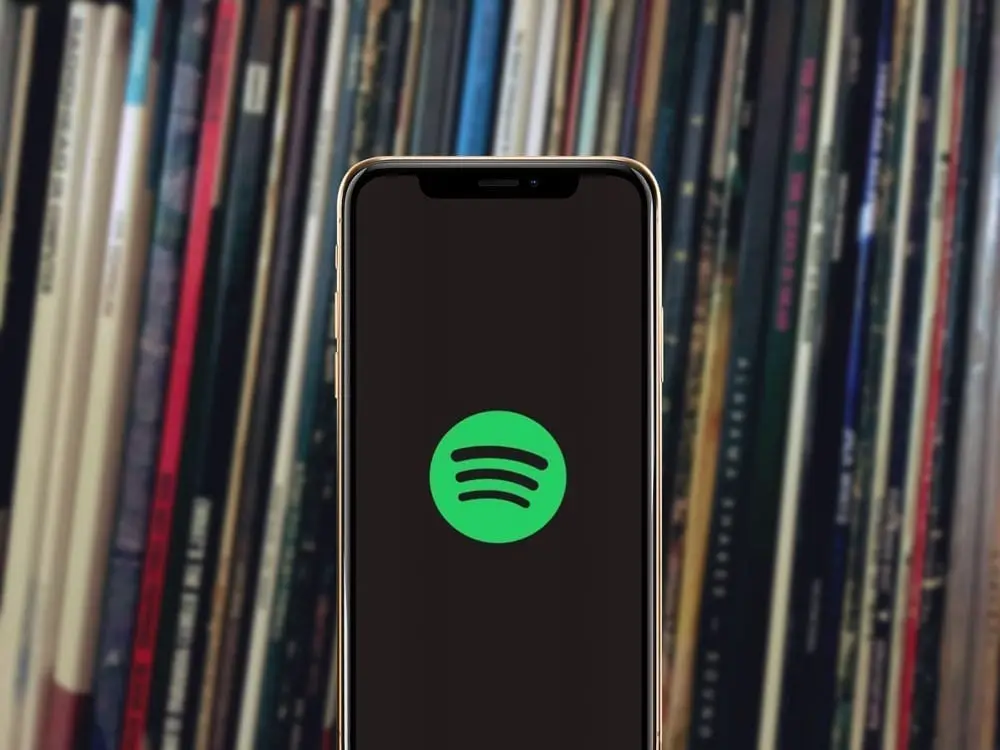
However, recent figures released by the BPI (British Phonographic Industry) suggest that sales might be starting to plateau, with 4.2 million records sold in 2018 (a modest rise of just 1.6% on the previous year). Parallel to this, CD sales plummeted by 23% last year, as consumers continue migrating to streaming services for day-to-day music consumption. Vinyl continues to grow, but it accounts for just 3% of music consumption, which remains small when compared to streaming at 63.6%.
If you take the above figures on face value, you could easily dismiss the vinyl revival as a fad. To gain a little more perspective, we spoke to a broad range of industry professionals, including a mastering engineer, a record label owner, and the owner of a record store to find out whether or not vinyl is still relevant in the age of digital streaming.
First up is Barry Grint, a Mastering Engineer at Alchemy Mastering, with over 30 years experience mastering some of the biggest names in the business, including Prince, Oasis, Bon Jovi, and David Bowie to just a few. We start with Barry and the mastering process, as a basic understanding of how mastering can make or break any format is fundamental to understand vinyl’s place in the modern market.
“By buying vinyl, you are improving the odds of someone with experience being involved with the mastering.”
Barry Grint – Mastering Engineer
Having started his career when vinyl was the lead format, you might expect a bias toward music on vinyl. In reality, Barry remains fairly neutral, explaining how in reality, all formats are only as good as the production process they receive. “The truth is, there are truly astounding vinyl releases, and some less appealing”, he explains. “The more care and attention a vinyl release receives throughout the production process, the better the end result.”
Barry adds some context to this point by emphasizing that it all starts with the source, and that despite some popular belief, digital files will not make a record inferior.
“There are many misunderstandings about digital and analog,” he states. “I have often been asked whether I made a particular set of lacquer masters from the analog tapes. Today, sessions are recorded digitally, mixed digitally, and supplied for mastering as uncompressed audio files (as in not a lossy format such as MP3). Many older recordings have been digitized to counter degradation, caused through an unfortunate error when the tape was manufactured. But none of this will make a record inferior.”
So while digital in itself doesn’t render a vinyl record substandard, what can affect the outcome is how the files are treated, as Barry clarifies. “Using highly compressed and limited audio, intended for digital download and streaming, will deliver poor results. Some people believe that a cut (shorthand for cutting the lacquer masters) will be fine, provided 24bit masters are supplied, but in my view, a 16bit unlimited file wins over a 24bit squashed one.”
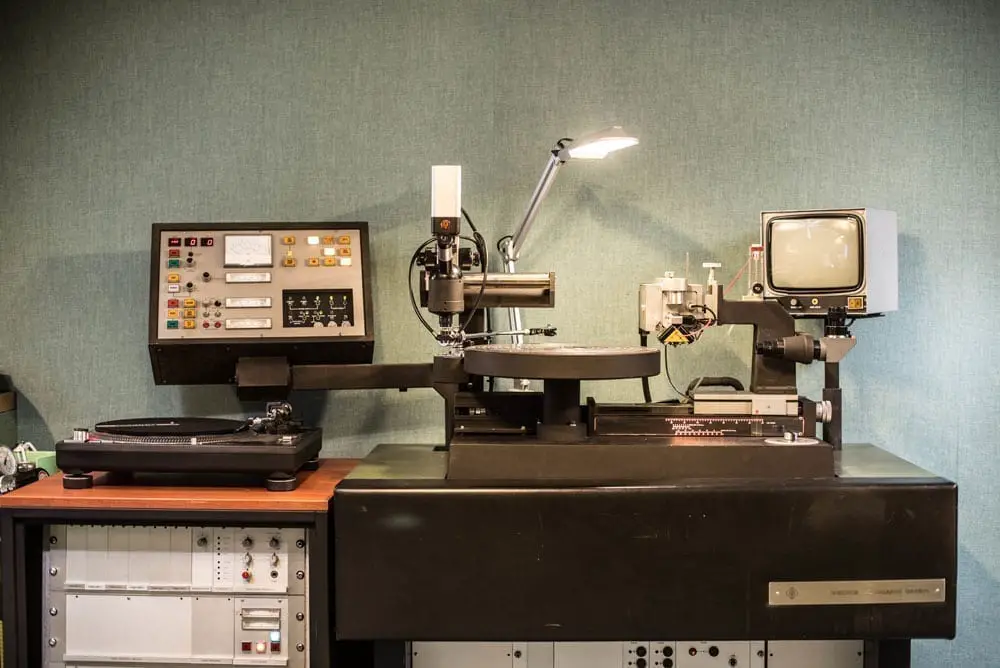
“Vinyl is a musical medium; something that sounds great, will sound great on vinyl. Vinyl has limitations: peak distortion, sibilant distortion, inner groove distortion; and for longer sides, a reduction in volume (and possibly, bass). It also has an openness at the high frequencies: ‘air’ around the cymbals; and with half-speed mastering, many of the limitations are ameliorated. Digital has few limitations, which is not necessarily a good thing. As mentioned, the audio can be squashed so flat that there is no discernible difference in volume at any point. The sound can be made harsh, and ear piercing: none of this is because of ‘digital’; it is because of the way the equipment is used.”
Any mastering process requires real skill and a great sounding room to achieve top-class results. But it would appear that vinyl, in-particular, requires a higher level of experience. Barry explains how this can increase the appeal of vinyl. “The equipment used to make the vinyl master is not straightforward to use, and has fragile components. No-one walks in and starts cutting records. There are any number of people using laptops in their bedrooms, offering mastering services, but wherever there is a disc mastering lathe, you can expect to find an acoustically treated room, and an experienced engineer. By buying vinyl, you are improving the odds of someone with experience being involved with the mastering.”
Much of what Barry explains is crucial to understanding where vinyl stands in the digital age. Vinyl clearly has its pros and cons as a format, but when the process is handled with care, it is possible to achieve great results on vinyl that hold their own in the digital world. A cookie cutter approach, however, whereby some of the more heavily compressed mastering techniques afforded by digital are applied across the board (including vinyl), will not produce the results vinyl fans expect.
Beyond the Tech
Past the technicality of production, any vinyl fan will tell you that there’s more to vinyl than great sound. The experience of collecting, playing and caring for vinyl is all part of the complete package, as Barry echoes in his closing words. “There is much satisfaction that comes with admiring the sleeve artwork, seeing the names of those behind the scenes, and the pleasure of taking care of the record. Every day, I love cutting records, and I enjoy mastering music of every genre. I am not wedded to any particular doctrine, either; I will use digital and analog equipment, whichever is best suited to the job. I firmly believe that vinyl is as relevant today as it has always been, and no matter the format you choose, just enjoy the music.”
What’s in a label?
Many of the points raised by Barry are echoed by our second contributor, Rob Caiger, who is the label manager behind Charly Records, a British label that specializes in reissued material. “It’s less about one format being superior to another, and more about the importance of good mastering. People will often have a preference on the format, but with vinyl mastering in-particular, it’s so important that we don’t lose the mastering skill-set as we did many years ago. It’s about making sure we take the time to ensure a release sounds the best it possibly can, and not just chucking it out there. And believe me, there’s a lot of rubbish vinyl out there where the mastering just isn’t right. We master to suit each format, and there’s good digital out there, just as there’s great sounding vinyl. The key is to use your ears. I see various forums and content around the internet where someone has captured the medium and begun analyzing the waveform, and I think, just listen!”
Having established the importance of mastering and how from a pure sound quality perspective the format takes something of a back seat on this side of the debate, I ask Rob what he thought was driving a resurgence in vinyl.
“Record Store Day, first and foremost, was the catalyst in putting vinyl back into the forefront of the public’s mind,” he states with enthusiasm. “That being said, vinyl never fully went away (fortunately) thanks to the DJ community. They kept vinyl alive, and most importantly, they kept the pressing plants alive, but Record Store Day really helped to bring it back out of the underground and back into the hands of younger bands, which peaked many peoples interest. Artists at the time, such as Jack White and The Flaming Lips really got behind it, and from there the growth of vinyl year-on-year is staggering. It was seen as a cool format and you really see why some of the classic album covers were so admired. It brings to the forefront the wonderful artists, with great design, and at the end of the day, humans are tactile. Digital is convenient, but what can you do with it artistically? I use Spotify, it’s marvelous, but if I want to invest in something, there’s a whole experience that comes with vinyl. Just the limited length of each side alone means you have to react, it forces your attention.”
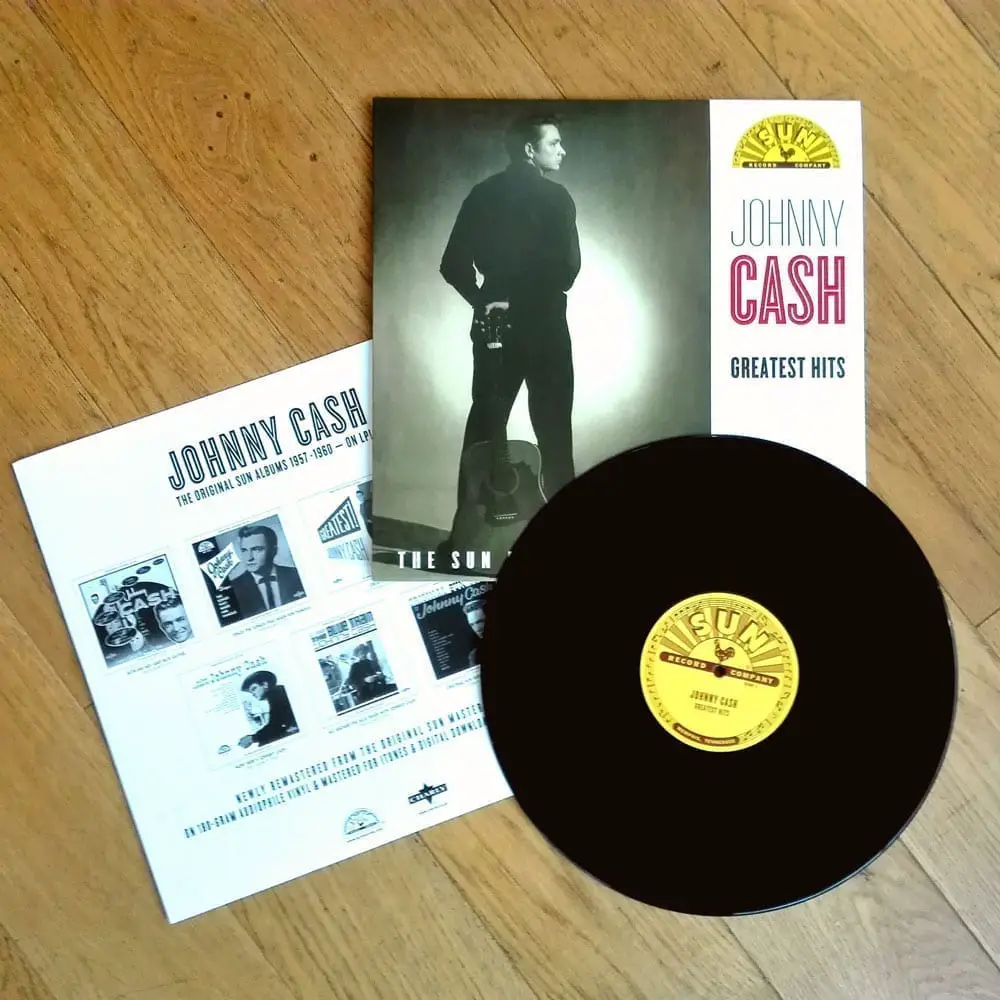
Rob was keen to dispell the myth that a resurgence in vinyl was driven by “hipsters”, a view that is vindicated by major supermarkets starting to stock select records. “The Johhny Cash Greatest Hits package that we recently worked on shifted more than 10,000 units in the UK alone. The supermarkets picked up on this release, and it just shows how widespread the interest in vinyl has become. If it’s being picked up in supermarkets, that’s every demographic you can think of. I think, despite the convenience of streaming, there will always be a section of society that wants to hold and explore a piece of work in their own hand. If you’ve invested into vinyl, it stays with you your entire life. There’s also the whole community aspect, the role of record stores (even if it is like the film High Fidelity where you get ripped apart for your music taste), there’s a growing trend for vinyl coffee shops, and their customers span all age ranges.”
Digital Compliments Vinyl
“Vinyl is absolutely still relevant in the digital age because it’s complimentary. To pitch vinyl against the modern convenience of digital streaming is completely the wrong emphasis.”
Rob Caiger – Charly Records
It would be wrong to suggest that consumers are choosing one format over another. Undoubtedly many will have a preference, perhaps, but for many of us, it is less about one format vs the other, and more about taking each on their own merits. Increasingly, in fact, it’s thought that one format often feeds demand for another – particularly in the case of streaming and vinyl. Rob gave us an example that seems to support this theory. “I read an article some time back that was titled ‘Streaming vs Vinyl (or something to that effect)’ and I almost expected the piece to conclude somehow that streaming will be the death of vinyl. In reality, the article should have read ‘Streaming Supports Vinyl’. The conclusion didn’t surprise me at all, as I know this describes my habits exactly. Just recently, I was in a bookshop in Crystal Palace, where I heard a piece of music that caught my attention. The Artist was John Grant. His voice is just fantastic, and until that moment his music had passed me by. I asked the guy at the bookshop who it was, checked out his music on Spotify, and then immediately went out and purchased the vinyl record. I would continue to listen through Spotify and the included CD for convenience, but when I had time to really listen, I would turn to the vinyl.”
Rob’s comment about reserving vinyl for the ‘real’ listen is a sentiment we’ve pickup up on at Sound Matters quite often. I put it to him that while consumers enjoy the convenience of streaming, it would appear that they’re turning to vinyl to plug the gap where streaming just can’t deliver the same complete experience. He agreed, and then circled back to the original premise and question of this article with a nice summary. “Vinyl is absolutely still relevant in the digital age because it’s complimentary. To pitch vinyl against the modern convenience of digital streaming is completely the wrong emphasis. Perhaps now, more than in the days when CDs were the dominant digital format, vinyl is more relevant than ever because streaming and vinyl compliment each other.”
The Front Line
“For a while, it felt like the industry was at war with online music, but in more recent years I think it’s learned to embrace it.”
Steven Courtnell – Pie & Vinyl
Our third contributor, Steve Courtnell is right on the front line of the vinyl revival with his unique twist on the traditional record store. Pie & Vinyl is a record cafe based in Southsea, England that provides a unique blend of new music on vinyl with solid hearty comfort food. Having been in the game for over nine years, Steve has seen vinyl grow from strength to strength. “It wasn’t so long ago that we were told that physical music was dead as a dodo,” Steve claims. “But we noticed that a lot of the new bands coming through were interested in vinyl, and with many new releases shipping with a download code, it was clear there was a great mix of experiences to be had. Consumers could buy a vinyl record for the experience it delivers, while still getting to know the album in a really modern way with the included digital copy. It was a case of two worlds colliding, and to us at Pie and Vinyl, it was clear that digital and vinyl could co-exist – we even have Spotify in the shop. For a while, it felt like the industry was at war with online music, but in more recent years I think it’s learned to embrace it.”
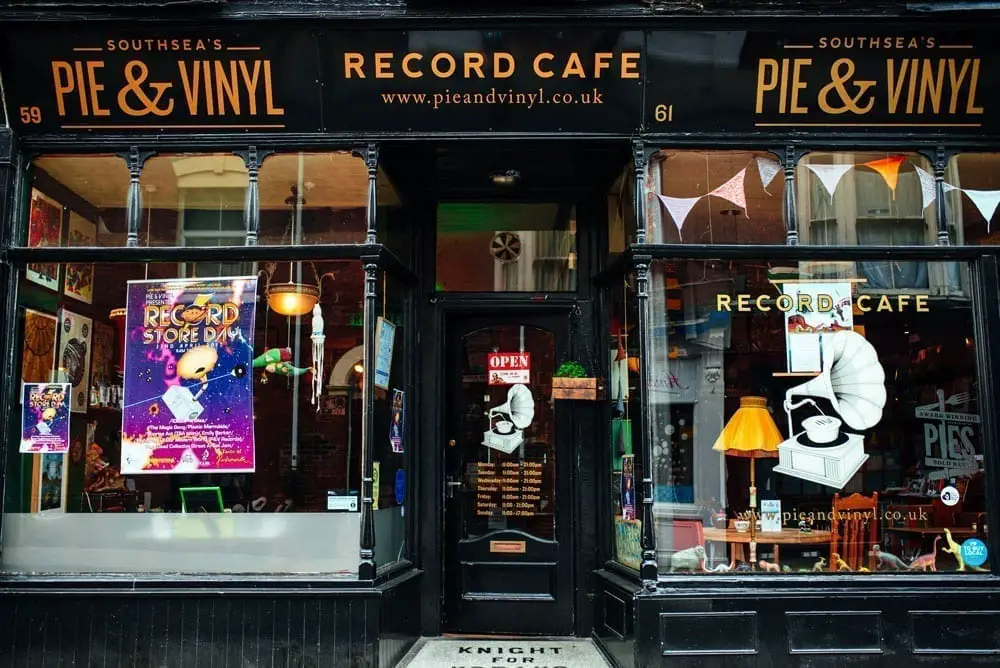
It’s fascinating to hear Steve’s comments echo that of Rob from Charly Records on the proposition that digital and vinyl support each other. Steve continued by explaining how this works at Pie and Vinyl. “Records aren’t cheap, and we see a lot of our customers really doing their homework before committing to a purchase, often that includes streaming the record online, and many artists will often make an album available online for free before the release to help stimulate demand. I think this approach does help to open up opportunities for new acts to sell physical copies. For many of the younger generation, it’s almost as though vinyl is actually a new format, and it’s easy to see the attraction when you consider how creative some of the releases are, with the use of color and great artwork – plus the fact almost all new releases are 180g.”
The idea that a format invented in the 1940s (microgroove records), could be viewed as a new format in the eyes of many is an interesting angle. Steve continues by explaining further in terms of what his consumers gain from music on vinyl. “We don’t sell pies; we don’t sell records; we sell an experience, and that’s exactly what the internet doesn’t fully deliver. When a customer streams before release, they can get a feel for that record before committing and then taking home a totally different, more human experience that comes with the process of vinyl. You know, enjoying the artwork, gently taking the record out of the sleeve, placing the record on the platter and feeling like you’re really a part of playing the music rather than just pressing return on a keyboard. It forces you to be more engaged with the music and puts your mind into a different place. It becomes almost a sacred thing, whereby you have to listen to each side, and that, I believe, makes you more likely to take it all in. For the younger generation, (perhaps those who don’t remember a world before the internet), you really have to put yourself in their shoes to understand why they would want to buy vinyl records, and it is because it’s such a different experience to pressing play on a tiny little device; it’s such a valid and important experience if you really love music. It’s interesting that the vinyl format has surged, while the CD has dwindled in recent years, and I believe that has everything to do with experience.”
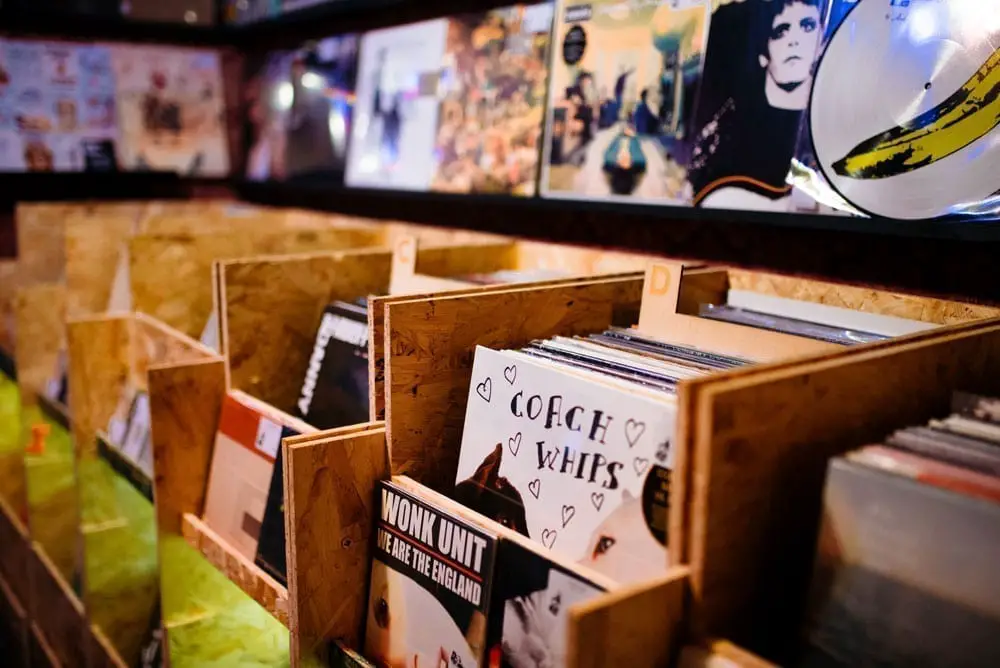
Vinyl – The Physical format for the Digital Age
In the world of audio, there is perhaps no debate more heated and impassioned than the age-old question of analog v digital. As vinyl is an analog format, you could be forgiven for expecting our commentators to really emphasize the pros and cons of analog. Instead, each person I spoke to was keen to steer the debate away from format wars, and instead stress the benefit of each format on its own merit. Of all the points put forward, one, in particular, kept surfacing in one form or another, and that was the experience factor. The digital age offers many benefits, but it simply cannot tap into our desire as humans to experience something more tactile and to own the music we love. Music on vinyl is the perfect counterweight to our busy digital lives, making it truly relevant for many years to come.
Thank you to our contributors:
Barry Grint:
https://www.alchemymastering.com/
https://twitter.com/BazzaGrint
Rob Caiger
http://www.charly.co.uk/
https://twitter.com/CaigerRob
Steve Courtnell
https://pieandvinyl.co.uk/
https://twitter.com/PieandVinyl

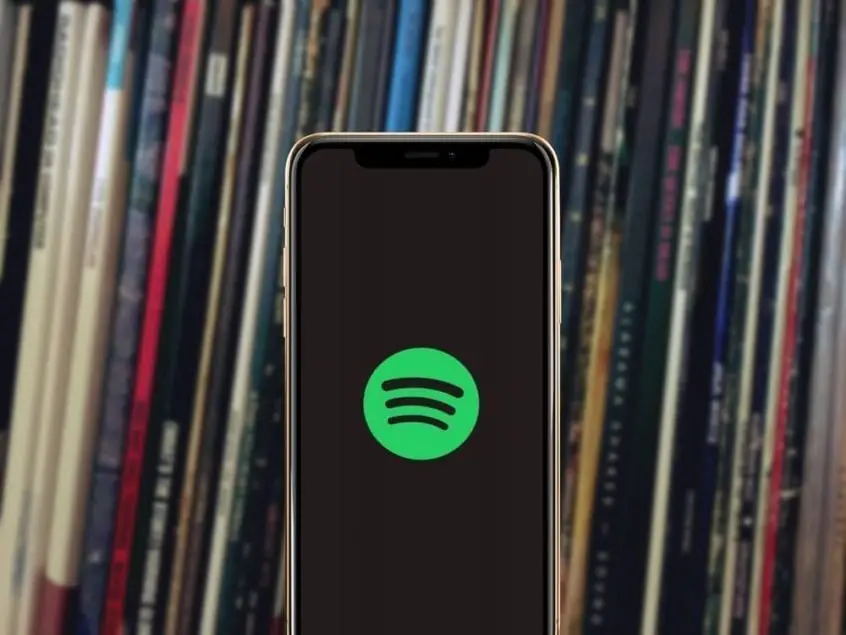


[…] we say more!? Vinyl survives and even complements digital streaming as it offers an experience beyond anything achievable in a digital world. Increasingly, consumers […]
[…] Bryan states. “The main goal of the Vinyl Alliance is to strengthen the position of vinyl records in a digital world. We want to turn up the volume and promote vinyl records as a modern way to consume […]
[…] In the digital age, vinyl offers the perfect antidote to the soullessness of streaming. In fact, there are plenty of reasons to believe that streaming is actually helping to feed the resurgence of vinyl sales. […]
[…] you’ve decided to start collecting vinyl. Fantastic! In our great digital age, vinyl records offer an experience that is authentic and […]
[…] your favorite artists and albums. But despite vinyl’s somewhat surprising resurgence in the digital age, the way we look after and maintain our records to ensure many years of listening pleasure […]